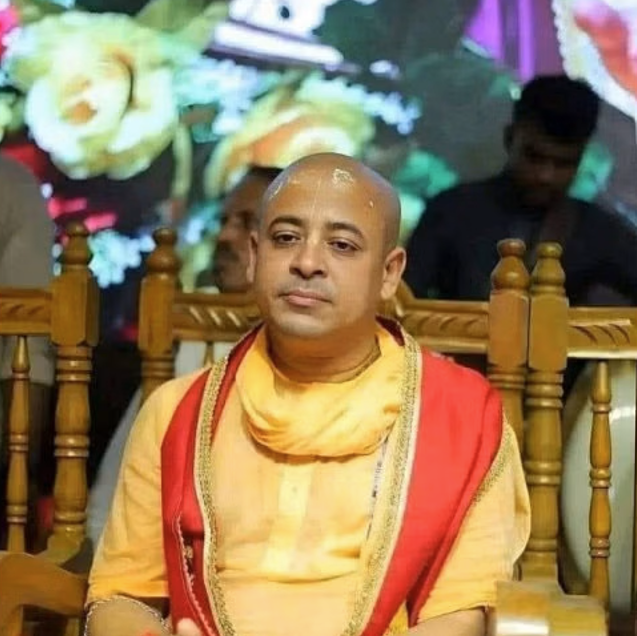Editorial | OTN Bangla
The legal ordeal surrounding Chinmoy Krishna Das Brahmachari—former ISKCON leader and spokesperson of Sammilita Sanatani Jote—has now become a powerful symbol of the challenges confronting Bangladesh’s justice system. After 156 days in detention under sedition charges, stemming from allegations of disrespecting the national flag, Chinmoy was finally granted bail by a two-judge High Court bench on Wednesday. However, the relief was short-lived.
Moments after the High Court’s decision, Justice Md Rezaul Haque, chamber judge of the Supreme Court’s Appellate Division, stayed the bail order following an urgent petition filed by Additional Attorneys General Mohammad Arshadur Rouf and Aneek R Haque on behalf of the government. In a surprising turn of events later that day, the same chamber judge withdrew the stay order on a suo moto (voluntary) basis, according to Chinmoy’s lawyer Apurba Kumar Bhattacharjee, who confirmed the update to OTN Bangla.
This back-and-forth reflects the disconcerting tension within the state apparatus itself: one arm appearing to adhere to judicial procedure and another seemingly intent on obstructing it. More troubling is the broader context of this case, which casts a long shadow over the integrity of the legal process in the country.
Chinmoy Krishna Das was arrested on 25 November 2024 at Hazrat Shahjalal International Airport. His arrest provoked nationwide protests and concern from various quarters, as it was widely viewed as politically motivated. On December 3, 2024, the court deferred his bail hearing to January 2, 2025—citing a government plea and, notably, the absence of any legal representation for Chinmoy. This was not a mere procedural gap—it was the result of an unprecedented and deeply troubling move by the Chittagong Bar Association to bar lawyers from representing him.
Such a decision starkly violates professional ethics and undermines the core of any functioning democracy: access to justice. It represents a direct breach of Bangladesh’s Constitution, particularly:
-
Section 32, which protects personal liberty under the law;
-
Section 33(1), which affirms the right to be informed of charges and to consult legal counsel;
-
Section 33(5), which mandates the right to a timely defence.
These constitutional guarantees were not honoured. Chinmoy’s prolonged detention without proper legal defence and repeated procedural delays are not only violations of domestic law but also contravene Article 14 of the International Covenant on Civil and Political Rights (ICCPR), which ensures the right to a fair trial—a right Bangladesh has committed to uphold as a signatory.
Even during the bail hearing, the state’s legal team sought to introduce unrelated and emotionally charged issues, including references to the death of a lawyer in Chittagong. The court rightly intervened, reminding the state’s representatives that matters not included in the case file are irrelevant to the proceedings. Such tactics are a worrying sign of how legal arguments can be derailed by political narratives.
This is not merely about one man’s liberty. The case of Chinmoy Krishna Das now stands as a defining moment in Bangladesh’s ongoing struggle to uphold the rule of law, judicial independence, and human dignity. When legal defence is obstructed and judicial decisions are treated as political battlegrounds, public faith in justice erodes dangerously.
The judiciary must stand firm—beyond politics, pressure, and prejudice. Chinmoy Krishna Das, like every citizen, is entitled to constitutional protections, legal representation, and a fair process. To deny him these rights is to deny the very principles upon which the legal system is built.
Justice delayed is justice denied. The time to uphold the Constitution, not compromise it, is now.





